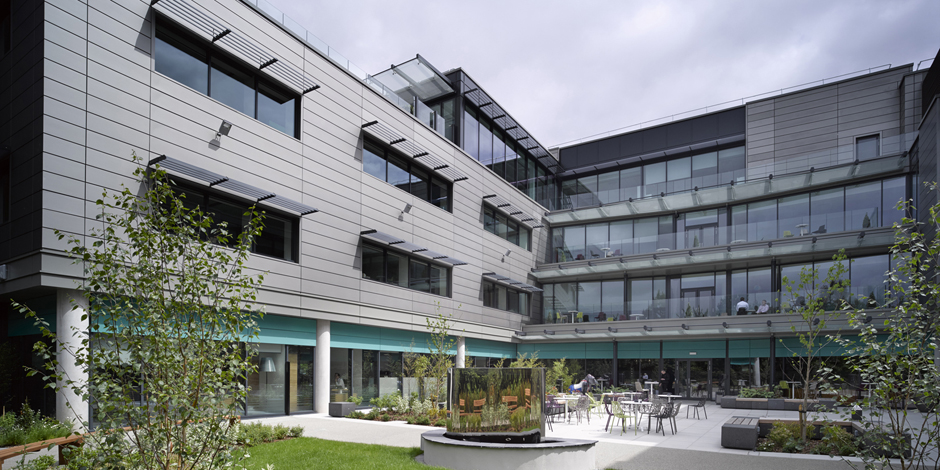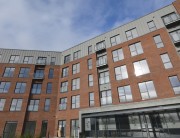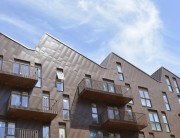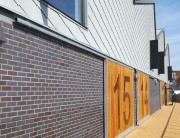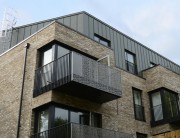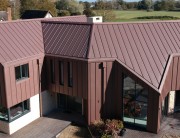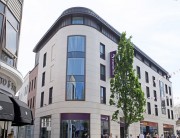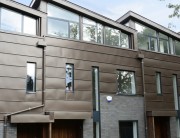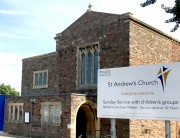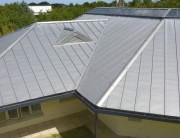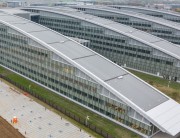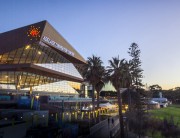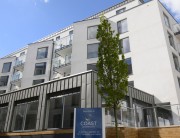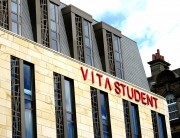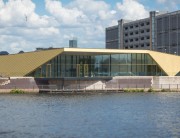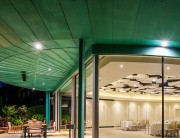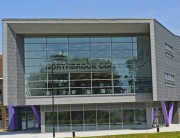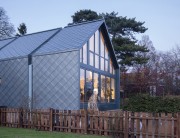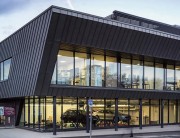Imperial Tobacco Bristol HQ – as above, so below
Project: Imperial Tobacco’s Bristol HQ
Client: Imperial Tobacco
Architect: Atkins, Walters & Walters
Contractor: BAM Construction
Cladding: Proteus HR honeycomb metal rainscreen
Zinc: NedZink NOVA
The versatility of zinc is clear at Imperial Tobacco’s Bristol HQ, where it moves from roof to facade to become a smart coat that will withstand all weather.
Crisp lines, generous bright spaces and high quality natural materials define the £18m Imperial Tobacco HQ in Bristol, designed by architect Atkins, Walters & Webster (AWW) to reflect the corporate standing of the international FTSE top 25 company.
The 100,000m2 office is set over four floors, each linking to a generous front atrium with curved white balconies. An executive floor with boardroom and bar opens to a terrace overlooking a large courtyard.
Sustainability is at the heart of the scheme, which includes an energy centre with biomass boiler, over 500m2 of photovoltaic panels and efficient LED lighting.
The building’s highly orthogonal facades are a mixture of glazing, unitised curtain walling and horizontal bands of zinc cladding. The layout is designed to maximise natural daylight for interior lighting of offices, while minimising solar heat gain.
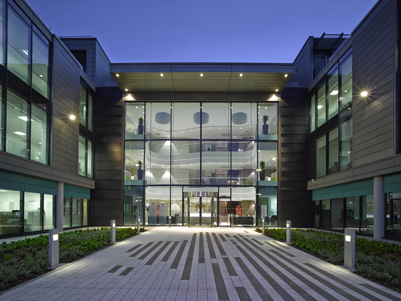 Zinc cladding, supplied as a flat Proteus HR, Honeycomb Metal Rainscreen, matched the project’s corporate feel and the local context.
Zinc cladding, supplied as a flat Proteus HR, Honeycomb Metal Rainscreen, matched the project’s corporate feel and the local context.
AWW project architect Andrew Boardman said: ‘The zinc was appropriate to the local area, which has light industrial buildings and car showrooms. The site was home to Imperial Tobacco’s original cigar factory and the zinc seemed to reflect that in a more refined, contemporary way.’
AWW had considered using white rendered blockwork walls, but changed tack after seeing the effects of weathering, including staining, on other white rendered buildings. Conversely, the zinc, supplied by SIG, would initially weather, and then remain static in appearance for many years.
Two types of metal were supplied: roughly 1,050m2 of mid-grey coloured NedZink NOVA for the facades, and 700m2 of a darker grey for walls around the staircores. Both have a pre-weathered, natural matt finish.
‘Zinc is a naturally occurring element with a minimum 60 years life expectancy and zero maintenance. A patina forms on surface to protect the material, which naturally reheals itself,’ said Simon Walker at SIG. AWW was novated to main contractor BAM Construct under the design and build contract. It was responsible for all design intent drawings, and for approving detailed drawings by the cladding subcontractor.
Zinc cladding features predominantly on the southern elevation, surrounding strip ribbon windows with projecting brise soleil designed to reduce the solar gain inside the offices. Zinc covers the sheer walls of the mainly-glazed northern elevation.
The rainscreen is suspended from a bespoke Kingspan composite insulated panel system, attached to metal stud work on the concrete flat slab frame. The composite panel has a u-value of 0.15 and creates an airtight, watertight envelope before the zinc is applied.
NedZink NOVA panels are arranged in horizontal 400mm-wide strips with a shadow gap to match the dimensions of the ribbon windows. Wider panels were used on the staircores; projecting metal fins also create shadows and articulate the volumes.
‘To fit the scheme’s crisp design aesthetic the face of the zinc had to be very flat,’ said Boardman. ‘Zinc planks tend to expand and contract, creating an undulating surface, but we achieved a flat surface by applying the zinc to a 32mm-thick honeycomb sandwich.’
The zinc contributed to the building’s BREEAM Excellent rating; it recycles well, scores highly in the BRE Green Guide to Specification, and uses 25% less energy in manufacture than aluminium.
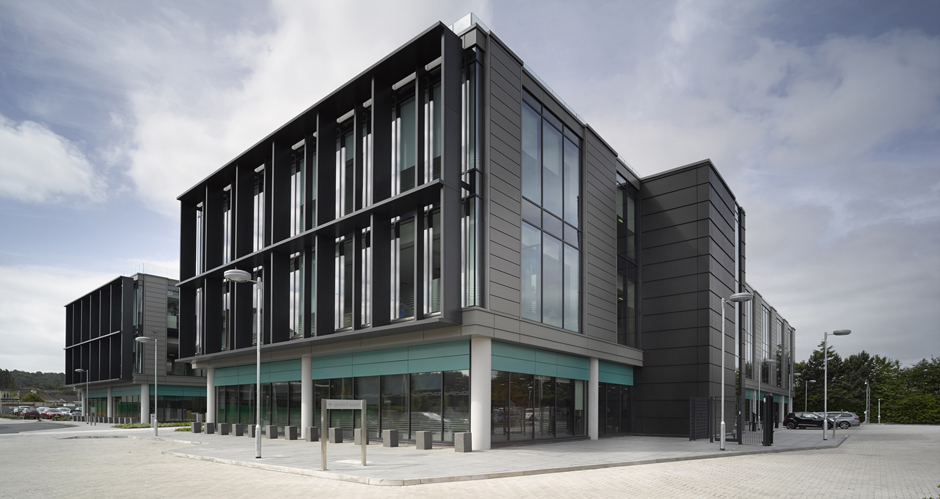 AWW was so pleased with the end result; it decided to specify a similar zinc cladding on Imperial Tobacco phase two, an office refurbishment just completed on the adjacent site. ‘The zinc ties the two buildings together very nicely, so they look like part of the same complex, even though they are very different in overall appearance,’ concluded Boardman.
AWW was so pleased with the end result; it decided to specify a similar zinc cladding on Imperial Tobacco phase two, an office refurbishment just completed on the adjacent site. ‘The zinc ties the two buildings together very nicely, so they look like part of the same complex, even though they are very different in overall appearance,’ concluded Boardman.
Reproduced by kind permission of RIBA Journal
Imperial Tobacco HQ – as above, so below case study
More information
SIG Design & Technology has put together an 8-step guide to identify the challenges and ensure that a roof’s design meets a building’s requirements. Called “#Perfect Roof”, the eight steps follow the process from product selection and design expertise through to full guarantees and planned maintenance. This know-how is just part of the service that is provided free to customers.




